August/September 2024
kcsjcatholic.org


August/September 2024
kcsjcatholic.org


The magazine of the Catholic Diocese of Kansas City-St. Joseph
August/September 2024 VOL. 4 | ISSUE 5
Bishop James V. Johnston, Jr. PUBLISHER
Ashlie Hand EDITOR
Janna Stellwag GRAPHIC DESIGNER
To submit story ideas and news, send emails to hand@diocesekcsj.org

Catholic Key (ISSN 2769-2353, USPS 024-190) is a membership publication of the Diocese of Kansas City-St. Joseph, published bimonthly (Feb/ Mar, Apr/May, Jun/Jul, Aug/Sep, Oct/Nov, Dec/Jan) by the Diocese of Kansas City-St. Joseph, The Catholic Center, 20 W. Ninth St., Kansas City, MO 64105. Periodicals Postage Paid at Kansas City, MO and at additional mailing offices. POSTMASTER: Send address changes to Catholic Key, The Catholic Center, 20 W. Ninth St., Kansas City, MO 64105. ©2024 Catholic Key, Diocese of Kansas CitySt. Joseph.
ON THE COVER:
Anita Daniels (center) and her daughters Krista Daniels (left) and Kara Brown (right) are carrying on the tradition of Catholic education passed on to them from their grandmother, Marie. Photo by Ashlie Hand.

Ashlie Hand leads the Office of Communications for the Diocese of Kansas City-St. Joseph

12
STORY
Women in Catholic education | Ashlie Hand
Anita Daniels and her two daughters, Kara Brown and Krista Daniels, come from a long legacy of women devoted to Catholic education in the Diocese of Kansas City-St. Joseph. All three women have impacted schools at the elementary, middle school and high school level as teachers, volunteers, parents and coaches. They all point to their family matriarch, Marie, though, for inspiring in them the commitment to pass on the faith through Catholic education.
4 On the Way: What makes a school “Catholic”? | Bishop James Johnston
An authentically Catholic school always has the person of Jesus at its center, and it is from Jesus that the school community draws its life, its inspiration and its culture.

Allison Vrooman is communications specialist for the Diocese of Kansas CitySt. Joseph.
6
Finding peace in an election year | Deborah Sheppard
Election seasons should contain a sense of gratitude and hope. We have a duty to vote with an informed conscience. By studying issues and policy with reflections and teachings of the Church, you can find peace and optimism.
8
House of God | St. Rose of Lima Parish, Savannah | Ashlie Hand and Cory Thomason
In Savannah, a small town just north of St. Joseph, St. Rose of Lima Parish has a legacy of faith and fellowship dating back to 1874 when it began as a mission of the monks of Conception Abbey.
20 To Serve and Lift | Empowering communities through education | Katie Pike
The integration of education into outreach efforts amplifies their impact significantly. Catholic Charities of Kansas City-St. Joseph offers a variety of education opportunities to its clients.
23 FIRE Foundation stokes the flame of inclusive Catholic education with Project BONFIRE | Marty Denzer
FIRE Foundation and its network of affiliates plan an expansion of opportunities for students who have historically not been served by Catholic schools.

Katie Pike is the annual appeal manager for Catholic Charities KCSJ.
28 Beyond the circuit board: The spiritual strength behind robotics victory | Allison Vrooman
In 2016, a robotics program was started at St. Therese Catholic School with two robots and 12 students. The program has now grown to a roster of approximately 60 students, composing 11 different teams. Two of those teams reached the world championships last spring.
30 Guardian Angels Parish: A comeback story | Marty Denzer
Guardian Angels Parish, in the iconic stone church on Westport Road, was almost closed. Following a strategic study of deaneries I, II and XI, its pastor, Father Carlito Saballo, SOLT, had two years to try and turn things around.
34
‘The Mission: Faithful Odyssey’ board game gets set to launch | Sara Kraft
When the idea for an engaging Christian board game struck, Jackie Nold, parishioner at St. Mary Parish in St. Joseph, wife and mother of eight, decided to produce it for others to enjoy.
25
Los Hispanos y un Mejor Tipo de Política | Por Leyden Rovelo-Krull
26
En el Camino | ¿Qué hace que una escuela sea Católica ? | Por Obispo Johnston
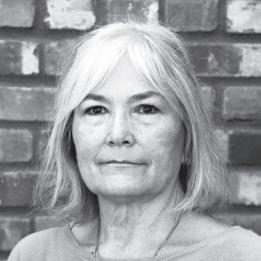
Marty Denzer is a long-time writer in residence for the Catholic Key.

Sara Kraft is a freelance writer in St. Joseph, Missouri.
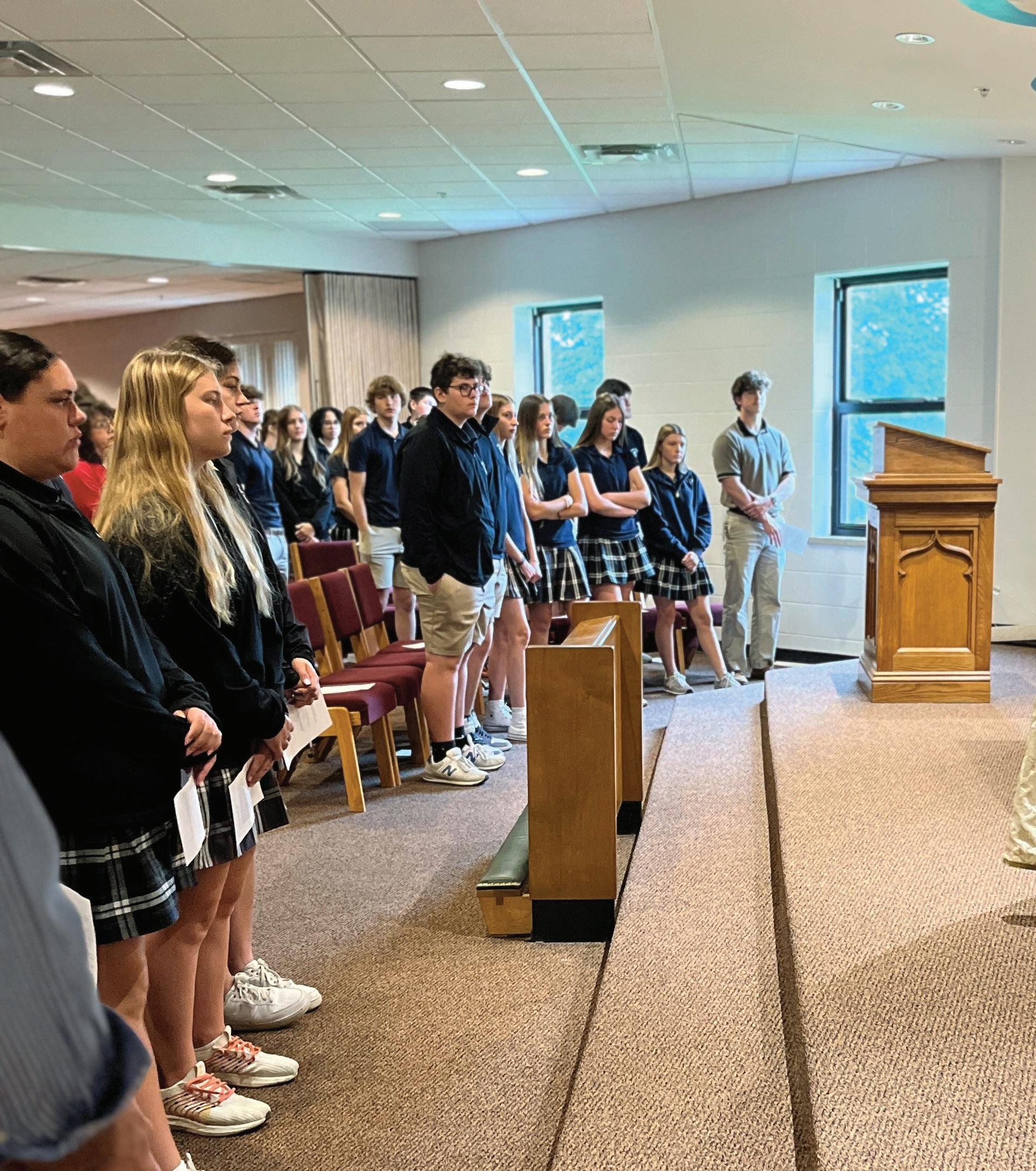
I am the light of the world. No follower of mine shall ever walk in darkness.
- John 8:12

From the Bishop Bishop James V. Johnston, Jr. is the seventh bishop of the Diocese of Kansas City-St. Joseph
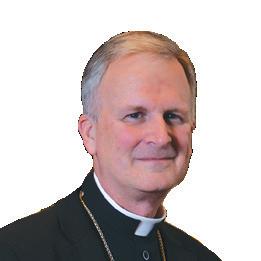
This is an exciting time for our Catholic schools in the Diocese of Kansas City-St. Joseph.
A significant and steady increase in our enrollment over the last five years is indication that more are realizing what a difference a Catholic education makes in a child’s life. But what exactly makes a Catholic school “Catholic”?
The short answer to this question is quite simple: Jesus Christ, the Son of God and Savior of the World. An authentically Catholic School always has the person of Jesus at its center, and it is from Jesus that the school community draws its life, its inspiration and its culture. Jesus is loved in prayer and sacraments and Holy Mass; He is “the Word through whom all things came into being” (cf. Jn 1:3) and so he makes intelligible all subject matter and all of school life.
Speaking more broadly, Catholic schools carry out their mission with a Christian view of the human person, the world, and education. Each student is received as one made in God’s image, unique in personality and gifts. Each student is made to be loved and realize a vocation and God-willed purpose in life and, most importantly, realize fulfillment in the eternal life in heaven.
Culture is defined by what a community chooses to celebrate — a Catholic school draws joy from celebrating what God has done for us and is doing now, within the school community.
It celebrates feasts and saints; it also celebrates the goodness and accomplishments of our students, our families and our teachers. Catholic schools are marked by joy and gratitude. How this magnificent work gets accomplished involves a lot of people: students, parents (the first and most important teachers of their children), teachers, clergy, benefactors, administration and alumni. Working together, Catholic schools attend to all the dimensions of a student’s humanity: intellectual life and love for learning, the spiritual dimension and the life of the soul, and the human formation which includes not only physical fitness, but also developing virtues, manners, modesty, and understanding one’s personality and emotions. Catholic schools are like each of us in that they aren’t perfect, and so they are places where the exercise of patience and charity is always a necessity. And they are at their best when everyone is pulling in the same direction. Catholic schools are uniquely positioned for education because they can draw upon the great
wisdom of our Catholic heritage. This wisdom is articulated and embodied by those who have preceded us: saints, scientists, astronomers and mathematicians, writers and poets, artists, philosophers and many others. These witness that there is no conflict between faith and reason, religion and science. Catholic schools pass on this heritage which gives students an awareness of their place in the world and the great story of history. In other words, a Catholic education awakens students to their identity and their great destiny. It is no accident that anxiety and depression has increased so substantially in the last 20 years, especially among young people. While there are many contributing factors, I suspect a primary reason is lack of meaning — that many come to fear that life has no purpose and there is nothing to hope for. Catholic schools partner with parents to help children see that their life is full of purpose, that the great adventure they were created for is before them, and that at some point it will bring them to a cross they must take up. Students can realize they are an important part of God’s great story and made for greatness. Happiness doesn’t come from being smart or being successful, as desirable as those things can be. Ultimately, it comes from being wise and good. Only Jesus can fully deliver on that.
The Pro-Abortion Initiative Petition seeks to amend the Missouri Constitution and legalize abortion throughout ALL stages of pregnancy. On May 3, 2024, abortion supporters turned in signatures to attempt to initiate a statewide vote to add the right to an abortion into the Missouri Constitution. As of publication, local election authorities are reviewing the validity of the signatures gathered for presentation to the Missouri secretary of state who will determine whether there are enough valid signatures to place the petition on the November ballot. Continue to pray and educate yourself as well as your family, friends and fellow parishioners about the dangers of the ballot initiative.
1. This Section shall be known as “The Right to Reproductive Freedom Initiative.”
2. The Government shall not deny or infringe upon a person’s fundamental right to reproductive freedom … including but not limited to prenatal care, childbirth, postpartum care, birth control, abortion care, miscarriage care and respectful birthing conditions.
3. The right to reproductive freedom shall not be denied, interfered with, delayed or otherwise restricted unless the Government demonstrates that such action is justified by a compelling governmental interest achieved by the least restrictive means. Any denial, interference, delay, or restriction of the right to reproductive freedom shall be presumed invalid.
4. Notwithstanding subsection 3 of this Section, the General Assembly may enact laws that regulate the provision of abortion after Fetal Viability provided that under no circumstance shall the Government deny, interfere with, delay, or otherwise restrict an abortion that in the good faith of a treating health care professional is needed to protect the life or physical or mental health of the pregnant person. ...
8. For purposes of this Section, the following terms mean: (1) “Fetal Viability”, the point in pregnancy when, in the good faith judgment of a treating health care professional and based on the particular facts of the case, there is a significant likelihood of the fetus’s sustained survival outside the uterus without the application of extraordinary medical measures.
*Missouri Revised Statutes, Sections 188.010 - 188.375
**Based on Doe v. Bolton
By using “person” instead of adult or woman, anyone under the age of 18 could have an abortion or make any other reproductive decision without their parents’ consent or notification.
Referring to “miscarriage care” promotes the myth that a “right to abortion” is necessary to preserve care for miscarriages and ectopic pregnancies. This is false. Catholic hospitals have always provided comprehensive miscarriage care and will continue to do so regardless of the outcome of this petition.
Current Missouri laws* require abortion providers to explain procedure risks and ensure access to hospital transfer if needed and to administer medication abortions in person in case of complications for the woman. These health and safety standards could be seen as an “interference” or “delay” and be eliminated, making it even less safe for women seeking an abortion.
This amendment allows abortions at any time to protect not only the physical, but also the mental health of the woman. This means that a health care provider could justify a late-term abortion due to a woman’s “emotional, psychological, [and] familial” concerns.** An abortion provider would decide when a baby could survive outside the womb, leaving no clear protections for preborn children.
For more information, please contact the Diocese of Kansas City-St. Joseph Office of Life & Justice (www.lifeandjusticekcsj.org) Deb Sheppard, director: sheppard@diocesekcsj.org | Chelsea Voboril, program coordinator: voboril@diocesekcsj.org
By Deborah Sheppard, Director, Office of Life and Justice

For many of us, the polarity and diversity of society is stressful, but, through well-formed faithful citizenship, you can navigate the election season and experience peace.
As Catholics and Americans, we are fortunate to participate in our nation’s political and public life. But how do we participate and shape our society to look more like the Garden of Eden, where everyone has enough food and where everyone is safe?
Election seasons should contain a sense of gratitude and hope. We have a duty to vote with an informed conscience. By studying issues and policy with reflections and teachings of the Church, you can find peace and optimism.
Voting requires judgements about specific issues, laws and candidates. How can Catholics be the good Samaritan when evaluating the choices on the ballot? On these complex matters, it is our responsibility to form our conscience and grow in the virtue of prudence to approach issues of the day with the mind of Christ. Our conscience does not allow us to justify doing whatever we want, nor is it a mere “feeling.” (USCCB, Forming Consciences for Faithful Citizenship, 17)
There are four pillars to forming consciences for faithful citizenship.
First, the common good is a society where it is easier for people to be good, where groups of people or individuals can realize their potential. The common good is supported only if human rights are protected and responsibilities are fulfilled. For every “right to” something, there is a “duty and responsibility to” something else. We are responsible to ourselves, our families, the community and to the earth. (FCFC 49, 51)
Second, is recognizing the innate dignity of every human person. In the midst of the “throwaway society” that allows one member of the human family to sacrifice another for selfish reasons, Pope Francis urges us to build a “Culture of Encounter,” in which people with the greatest needs get the most concern and attention. (Fratelli Tutti 18, 232)
Catholics have a duty to protect the most vulnerable, including children in the womb, while walking with mothers and families in need. The Church actively assists mothers and their children to have a brighter future. We protect the elderly and disabled. We value the migrant and the refugee. We strive to overcome racism in our hearts and institutions, and we work for a criminal justice system that is fair, effective and healing, with no use of the death penalty.
We are one human family. Solidarity requires that in our prayer and in our political activities, those who are vulnerable and most in need receive preferential concern.
Finally, subsidiarity is the principle which values the smaller and local institutions of society (such as family, parish, school) to not be overruled unnecessarily by larger institutions (such as state and federal government). Subsidiarity assures local control and representation. The Church advocates for and maintains these social structures of community by protecting the family and definition of marriage, and we uphold the rights and responsibilities of parents to care for their children.
While the decisions this election cycle may seem impossible, we can be comforted and instill peace in ourselves and others by focusing on these principles as we inform our conscience and prepare to vote faithfully. Together, we can build a future where everyone has the opportunity to thrive in a diverse American family, parish, city, state and nation.
To further form your conscience for faithful citizenship, go to www.usccb.org/offices/justice-and-peace/ forming-consciences-faithful-citizenship.
To help defeat the abortion ballot initiative please email sheppard@diocesekcsj.org
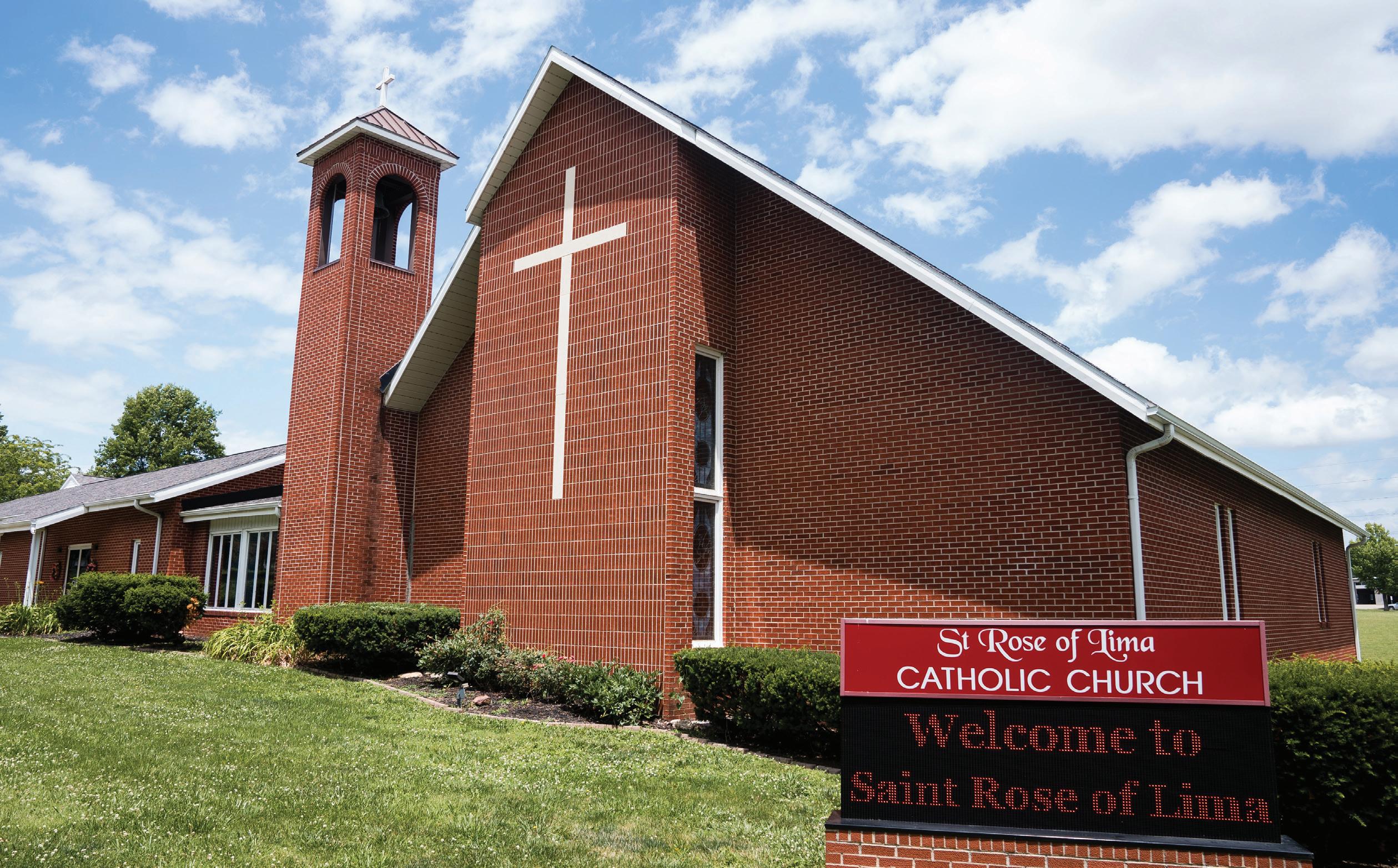
By Ashlie Hand | Photos by Cory Thomason
On Aug. 23, the Catholic Church celebrates the feast day of St. Rose of Lima. In Savannah, a small town just north of St. Joseph, St. Rose of Lima Parish has a legacy of faith and fellowship dating back to 1874 when it began as a mission of the monks of Conception Abbey. The first church building was constructed in 1898 and served the parish for more than seven decades before it was moved into its current building in 1971.
St. Rose of Lima Parish is thought to be named for the favorite saint of the pastor’s mother, as well as in memory of a deceased daughter of two of the parish’s generous donors. (This Far by Faith, Vol. II)
The altar, cantor stand and ambo were brought over from the first church, stripped of their white paint and restored to their original natural wood finish.


The current parish church was opened in 1971 on a plot of land donated by the Sisters of St. Francis. The parish grew so quickly it was expanded in 1979 to hold 250, and a parish hall with adjoining kitchen was added.

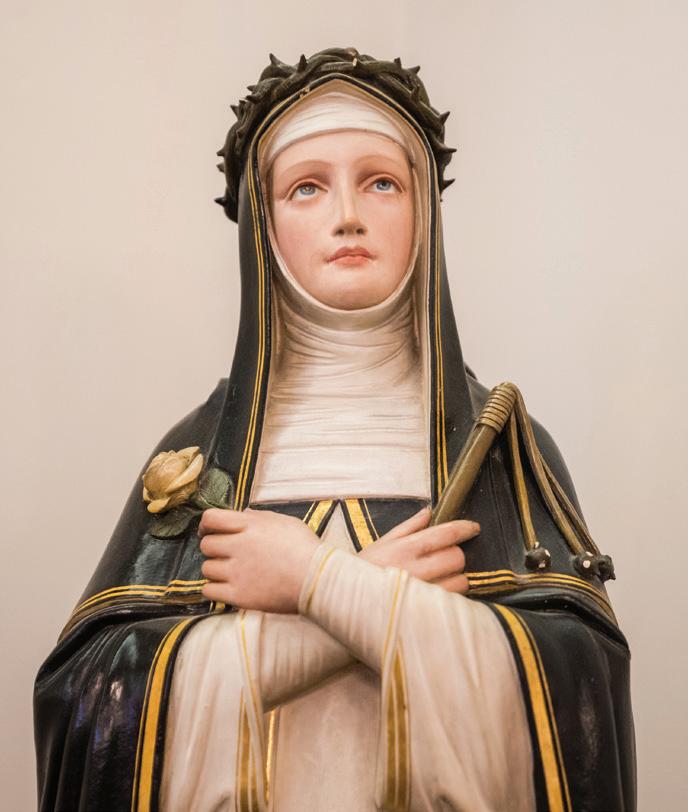

From 1986 to 1992, memorial stained-glass windows were donated by parishioners and dedicated to family members. The rose window was added in memory of Father Joseph Hughes, a young priest who passed away in July 2000, while serving the parish.
In 1990, classrooms, a basement and bell tower were added to house the original bell from the 1898 church.
This solid wood statue of Saint Rose of Lima was purchased by Barbara Bielman and placed over the altar of the original 1898 church. (This Far by Faith, Vol. II) Today, it stands watch over the parish hall and has been used to represent the parish in community parades and celebrations.
A second statue of Saint Rose of Lima came from Old St. Patrick Church in Kansas City and was given to Robert Bussjaeger by Monsignor William Blacet in 1991. Bussjaeger restored the statue and donated it to the parish in memory of his mother, Rose Ann Scanlon Bussjaeger, and it now stands behind the choir inside the current church.
(This Far by Faith, Vol. II)


By Ashlie Hand
After a multi-year fundraising campaign and 13-month construction project, the Bishop Hogan Center at the Catholic Cathedral of the Immaculate Conception was officially dedicated on June 16.


The dedication followed Mass celebrated by Bishop James Johnston, current Pastor Father Paul Turner and former Cathedral pastors Monsignor Robert Gregory and Monsignor Bradley Offutt. Members of the building committee, Building Glory Campaign committee, and Cathedral and diocesan staff also attended.
The Bishop Hogan Center is a 18,900-square-foot, two-story structure connected to the historic Cathedral by a glass walkway. The center houses parish administration, conference and choir rooms and a 300-seat venue for parish and community events such as wedding receptions, concerts and lectures. “The center will continue the vision of Bishop Hogan into a new era of community life and service,” said Father Paul Turner, pastor of the Cathedral of the Immaculate Conception.
The center is named for Bishop John J. Hogan, the first bishop of the Diocese of St. Joseph from 1868-1880, and the first bishop of the Diocese of Kansas City from 1880-1913. The reception hall is named after Father Bernard Donnelly, first pastor of the Cathedral, civil engineer and city leader from 1845 to 1880.
The new building will also house emergency and social services provided by the Cathedral’s Morning Glory Ministries (MGM). MGM serves hundreds of poor and homeless men and women each month, improving their safety, security and wellbeing, which includes facilitation of government IDs necessary for employment and housing opportunities.
“The Cathedral of the Immaculate Conception has been a cornerstone of spiritual and civic life in Kansas City for more than 200 years,” said Bishop James Johnston. “The new Bishop Hogan Center extends that legacy for a new generation for years to come.”


By Allison Vrooman

THE LORD GOD THEN TOOK THE MAN AND SETTLED HIM IN THE GARDEN OF EDEN, TO CULTIVATE AND CARE FOR IT.” – GENESIS 2:15
A Day of Prayer and Blessing of Farm Animals is based on the Catholic tradition of Rogation days and rooted in the call to respect all life given by the Creator. The word “rogation,” coming from the Latin word rogare, means to ask for or request, particularly for God’s blessings on the fruits of the earth and the work of human hands.
In the spring, the Day of Prayer at Seedtime seeks God’s blessing on plants and those who nurture them as the growing season begins. Likewise, as summer nears the end, there is

a blessing for the animals who provide nourishment and aid in human agriculture.
“The Day of Prayer and Blessing of Farm Animals was instituted several years ago to support the many farmers and farm families across our diocese who carry on the important work of producing food for our tables,” shared Bishop James Johnston.
The Catholic Church calls everyone to care for the earth, living the Faith in relationship with all of God’s Creation. In the Book of Genesis, God commands his people to cultivate and care
for the Garden of Eden, including both the land and animals. From the very beginning, man has been tasked with the responsibility of stewarding creation, respecting all forms of life.
“Animals are one of God’s greatest gifts to us and caring for them responsibly is a part of our stewardship of God’s Creation,” Bishop Johnston continued. “In this blessing, we are asking God to bless this gift and to bless us in its use for our good and his glory.”
The 2024 annual Day of Prayer and Blessing of Farm
Animals was held on Aug. 3. Bishop Johnston celebrated Mass at Mary Immaculate Parish in Gallatin, Missouri, then attendees gathered at a parishioner’s farm in Winston, Missouri, for the Blessing of Farm Animals. Attendees were invited to bring a farm animal as a representative of their herd to be blessed and to take the blessing back to their own farms. Jerusalem Farms in Kansas City hosted an additional blessing of animals on Aug. 3 at the Cathedral of the Immaculate Conception.

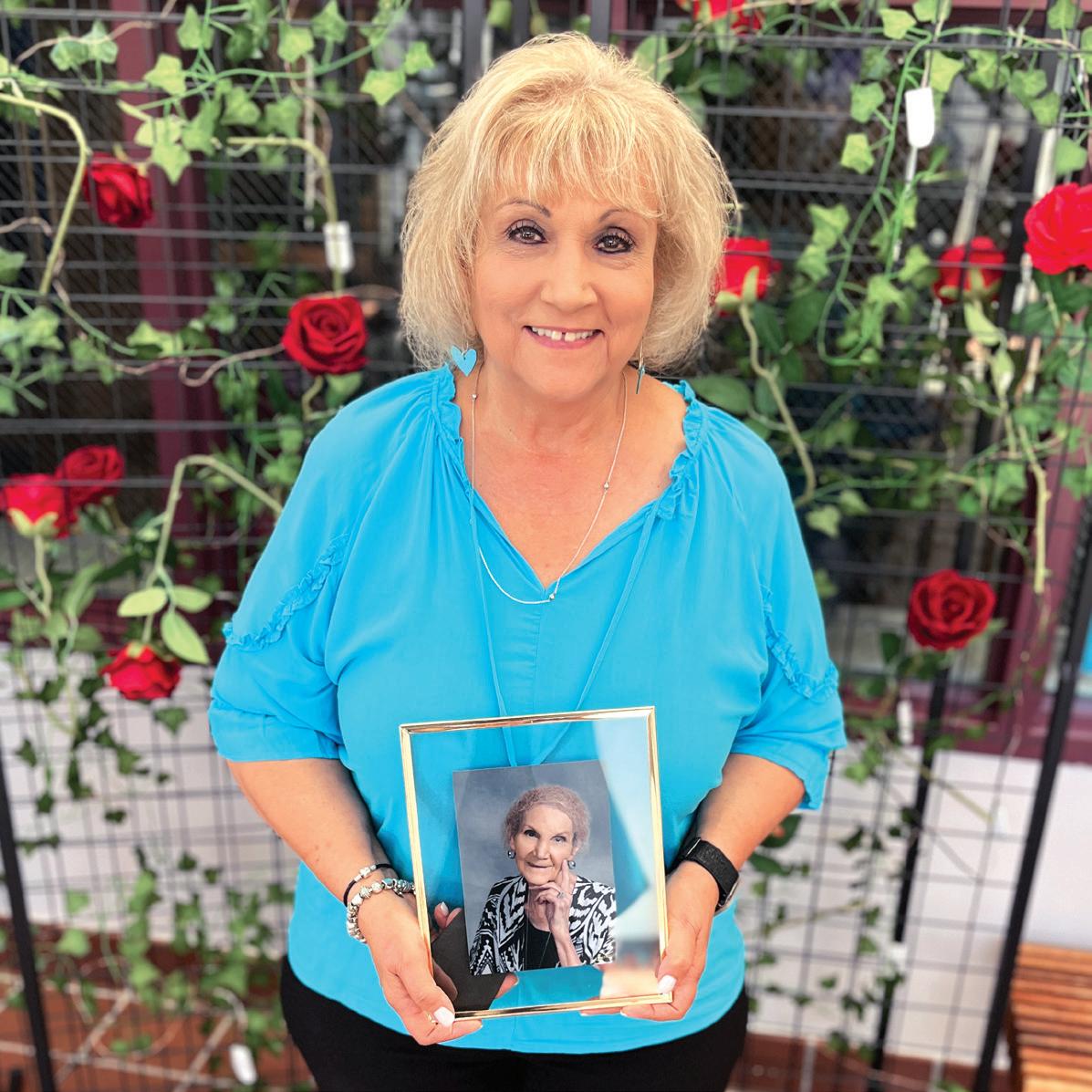
By Ashlie Hand
When it comes to Catholic schools in the United States, many have said that they wouldn’t exist today if not for Saint Elizabeth Ann Seton (17741821) and Saint Katharine Drexel (1858-1955). Both of these holy women have been called “sister saints” and widely celebrated for their shared devotion to educating poor children and ministering to the needy.
Danielle Bean, Catholic writer and speaker, wrote, “Mother Seton’s congregations focused on educating children of poor and working class Catholic families. Her system of schooling inspired the Catholic parochial school system we know in the United States today. Saint Katharine Drexel focused on providing education for poor Native American and African-American children.”
The Diocese of Kansas City-St. Joseph has been educating children in our Catholic schools since 1868, and today it is home to 28 diocesan elementary schools and early childhood centers, three diocesan Catholic high schools, two private elementary or preschools, four private Catholic high schools and two Catholic colleges.

Anita Daniels and her two daughters, Kara Brown and Krista Daniels, come from a long legacy of women devoted to Catholic education in the Diocese of Kansas City-St. Joseph. Anita’s mother, Marie, attended St. Aloysius High School, then sent her three daughters to Holy Cross Catholic School in Kansas City’s historic northeast neighborhood, as well as Catholic high school. It was her example, in addition to Anita and her husband’s own experience in Catholic school, that convinced them that it was the only option for their two daughters, as well.
“My husband and I always agreed, there was no question: they were going to Catholic school,” Anita recalled. Her husband, Frank, worked as many as three jobs to make sure his daughters could complete their education in Catholic school.
While Anita grew up in the neighborhood near Holy Cross, Kara and Krista commuted there from Blue Springs and later from their northland home, committed to carrying on the family tradition established by their grandmother. From Holy Cross, they moved on to St. Mary’s High School in Independence, then both graduated from Rockhurst University with their degrees in education.

“Do what we can and God will do the rest. What seems so impossible to nature is quite easy to grace.”
– Saint Elizabeth Ann Seton, from Collected Writings, Volume IIIa, page 568

“The patient and humble endurance of the cross — whatever nature it may be — is the highest work we have to do.”
– Saint Katharine Drexel
In addition to their own personal commitment to Catholic education, all three women cite a number of strong female influences on their choice to work in or build a career as Catholic educators — these have included teachers and administrators throughout their school years that have guided them along the way.
Anita currently works in the school office at St. James Catholic School in Liberty and served as a teacher’s aide at Holy Cross, St. Elizabeth and St. James schools for more than two decades. She specifically cites the family-centered culture of Catholic schools as a key reason she’s been devoted to them for so long.
For Kara, middle school religion teacher at St. James Catholic School in Liberty, it was a few of her teachers at St. Mary’s High School in Independence who sparked her love of reading that led her to pursue an education degree with a minor in English.
Kara also draws from Saint Catherine of Siena’s example of always putting others first, making it a point to take care of the sick and the poor.
“What we do is a vocation,” she said. “We’re putting the needs of the kids we teach before our own.”
Kara’s middle school students have developed a strong devotion to Eucharistic Adoration and soon to be Saint Carlo Acutis. She’s witnessed students who have graduated from St. James and now attend Liberty High School, popping over to Adoration on their lunch breaks.
“They love that quiet time — even if they don’t want to admit it, they really get a lot out of it.”
Krista, the inclusive education coordinator, head volleyball coach and girls’ basketball coach at St. Pius X High School, has known since first grade that she wanted to be a teacher when her teacher Mrs. Berracka would briefly allow her to take over the class. Bolstered by her older sister Kara’s influence, Krista never strayed from her dream to be a teacher and coach.
When Nativity of Mary Catholic School received one of the first grants from the FIRE Foundation, Krista was a student teacher and it was the leadership of two of her female mentors that ignited her passion for students with special needs. That experience eventually led her to take over the inclusive education program at St. Pius X High School in 2015 with 12 students. Today, she has a master’s degree in special education and manages a program for 60 kids with student education plans.
All three Daniels women understand that their role in the classroom also extends to their participation in their parish and faith community. Anita’s parents started the St. Joseph Table at Holy Cross Parish, and later, after her father Carl passed away, Marie moved to Liberty to be closer to her family and initiated a St. Joseph Table at St. James Parish, as well. It is a well-known expectation for every member of the family that every spring it’s all hands on deck to make the St. Joseph Table happen — a tradition Anita has taken on since her mother passed away in February this year at the age of 95.
“My mom’s probably tapping my shoulder. … It’s big shoes to fill, let me tell you,” Anita says with a broad smile.
Drawing on their grandparents’ example of family unity and participation in their parish, as educators, Kara and Krista try to pass on the same expectation to their students. Being seen practicing their own faith is one of the most important examples they can offer.
“It starts at the top… I wouldn't be where I am today if I didn't have [my family’s] guidance, watching how they fulfill their vocations,” Krista says.
Krista
Daniels, Anita Daniels and Kara Brown are members of St. James Parish in Liberty, where Kara is also the middle school religion teacher.

Conventional wisdom tells us that teens listen to peers and even other adults more readily than their parents. A 2022 study published in the Journal of Neuroscience1 found that, neurologically, it may be the case that brain development leads teens to “process their parents’ voices differently when they’re teenagers compared to their childhood years.” Experiencing this, parents commonly say, “They just won’t listen.”
However , sociological research compiled in Christian Smith’s book Handing Down the Faith reveals that when it comes to religiously motivated topics, this conventional wisdom is actually false.
Researchers like Smith attribute this conventional wisdom to “widespread cultural scripts” that “consistently say that the influence of parents over their children recedes starting with the onset of puberty, while the influence of peers, music, and social media take over.”
However, Smith observed that, “all research in the United States today shows clearly that parents are by far the most important factor influencing their children’s religion, not only as youth but also after they leave home.” Parents have a massive advantage because they have more time than others to influence their children.
Smith also observed that the youth rebellion of the 1960s based on early 20th century psychodynamic theory may have been genuine in its time, but “the reality today is far different and

the stereotype of an adolescent generation gap is baseless.”
Announced last November, The Way: Youth to Young Adult Initiative addresses this challenge. As the committee that formed this initiative looked at recent research on this subject, several discoveries validated that parents can significantly increase the odds that youth will live as disciples into adulthood.
First among them is teaching our children the language of faith by discussing it in daily life.
Parents have the most significant influence on their children despite what the dominant cultural voices of the past half century have loudly proclaimed.
Smith observes that everyday and ordinary moments are the context for the highest impact on faith transmission, “the key mechanisms of socialization are the formation of ordinary life practices and identities, not programs, preaching, or formal rites of passage.”
How and how often parents discuss religion and living faith in daily life “is a powerful signal to children of religion’s personal
importance,” Smith says. If parents regularly do this, “throughout the week, that effectively indicates to children that, in the mix of life’s many priorities and values, this stuff matters a lot.”
The Way will provide planned discussion guides that can help parents get these conversations started. Learn more at kcsjcatholic.org/theway.

by Dino Durando, Director of the Office of the Domestic Church and Discipleship
Parenting styles have a big impact on the effectiveness of faith conversations. They are commonly grouped into four categories: authoritarian, permissive, uninvolved, and authoritative.
Authoritative parenting is the ideal style to support influential conversations because these parents tend to have high standards paired with a high degree of connection (emotional/ communicative). They are active in their children’s lives while providing “a lot of guidance and supervision, and adequately adjust rules and requirements to fit situations and their child’s personality,” says Smith.
Authoritarian and permissive parents are typically not able to have influential conversations with their children, because they are lacking in one or more of these aspects in which the authoritative parents typically excel. Uninvolved parents are usually deficient in all of them.
The Printery House has been in business in some capacity for more than 90 years, beginning with the publication of the periodical Altar and Home, then operating as Conception Abbey Press before becoming The Printery House. Even longer ago than that, the monks of Conception Abbey arrived in northwest Missouri in 1873 with the mission of daily prayer and responding to the needs of the Church through our daily work Today, we believe that the time has come for another movement—one where we honor this ministry’s roots. We have changed the name of The Printery House to Altar + Home by Conception Abbey. Our mission will focus on sharing the monks’ Catholic faith and Benedictine spirituality that has led our work here for more than 150 years. www.altarandhome.org





Jamie Morris, the MCC’s Executive Director and General Counsel, talks with Rev. Father Tadeusz Pacholczyk, Ph.D., about the ethical concerns and Church teaching on In Vitro Fertilization (IVF).

Jamie Morris, the MCC’s Executive Director and General Counsel, recently spoke to Jimmy Akin about the lack of civility in politics. Jimmy Akin is a senior apologist at Catholic Answers.
Join Catholic Community Health as a volunteer -or- explore our career opportunities. Make a meaningful impact by serving seniors in your community.

Why Join KC’s ONLY Catholic Home Care & Hospice?
• Reflect Christ’s love through compassionate care. Work in a supportive, faith-based environment. Receive comprehensive training and support.
learn more & apply today:


The Mothers’ Shrine seeks a highly motivated, entrepreneurial leader who can lead its growth and operations toward becoming a world-class pilgrimage site.
LEARN MORE

SUBMIT YOUR RESUME BY AUGUST 30, 2024
Gary Slater, Interim CEO gslater@mmocs.org




By Leyden Rovelo-Krull
“BUT I CAN’T VOTE! WHY DOES IT MATTER?”
It is May and I’m teaching an evening class to our catechists on Catholic social teaching. We are talking about the Church’s teaching on the role and duty of Catholics in public life. I get where the speaker is coming from.
According to the Pew Research Center, a fact tank that conducts public opinion polls and demographic research, Hispanics/Latinos are less likely than other Americans to be eligible to vote. For two reasons: 1) we are younger than most (29% of Latinos are under 18, compared with 22% of the U.S. overall); and 2) some are not eligible to vote (19% of Latinos are not U.S. citizens, compared with 6% of the total U.S. population).
However, it is likely that families may be of mixed immigration status. Someone in the house, probably a young adult, can vote. And even if that is not the case,
the Church, as the body of Christ, has a profound responsibility to engage with the political realities of our time. As Pope Francis asserts, "Religious liberty, by its nature, transcends places of worship and the private sphere of individuals and families. … Religion itself, the religious dimension, is not a subculture; it is part of the culture of every people and every nation." Our Faith, far from being a private matter, must inform and shape our public witness, guiding us to advocate for justice, serve in public office and infuse daily life with the transformative power of the Gospel.

By Leyden Rovelo-Krull Director, Office of Hispanic Ministry
One of the most fundamental rights of a faithful citizen is the right to vote. To help shape the course of our country’s political and social destiny. By the same right, a faith-filled Christian recognizes that they too have a fundamental right to shape that destiny, and if eligible, vote with a well-formed conscience.
As faithful Christians, we are meant to change the temporal order. We lead by example to what Pope Francis calls a “better kind of politics.” As Catholics, we are challenged to heed the Holy Father’s words that, "good Catholics immerse themselves in politics by offering the best of themselves so that the leader can govern." This is not a mere suggestion, but a call to action: to redefine our approach to political participation and civic engagement. As Catholics, we are in a unique position to do away with the "inclination to be concerned only with myself, my group, my own petty interests" and instead seek "the good of all people.” To see disagreement as opportunities for fruitful collaboration rather than irreconcilable divisions.
While the pope, cardinals, bishops and priests have a crucial role in governing the Church and handing down doctrine, it is the responsibility of the laity to bring the Gospel to bear on the world.
“Though I cannot vote, I speak to my children about why it is important to vote. We talk about the Church’s view on all kinds of issues. Now I will use the Catholic social teaching themes to help form their conscience.”
I had a conversation with the mother of four U.S. citizens, kids born to her in the United States. Two are eligible to vote this year. She said to me, “Though I cannot vote, I speak to my children about why it is important to vote. We talk about the Church’s view on all kinds of issues. Now I will use the Catholic social teaching themes to help form their conscience.” I didn’t ask her about her political affiliation. It is none of my business. But I was encouraged to hear her desire to inculcate in her children a love for God and country. She wants her children to love their country, her adopted country. I think it is a beautiful sacrifice for her vision of a better life for them and a better kind of politics.
THE INTEGRATION OF EDUCATION INTO OUTREACH EFFORTS AMPLIFIES THEIR IMPACT SIGNIFICANTLY. THROUGH TARGETED OUTREACH PROGRAMS LIKE MOMS’ EMPOWERMENT, SOCIAL BUTTERFLIES, COMMUNITY HOUSING, AND FINANCIAL LITERACY, COMMUNITIES ARE EQUIPPED WITH THE SKILLS AND RESOURCES NEEDED TO THRIVE.
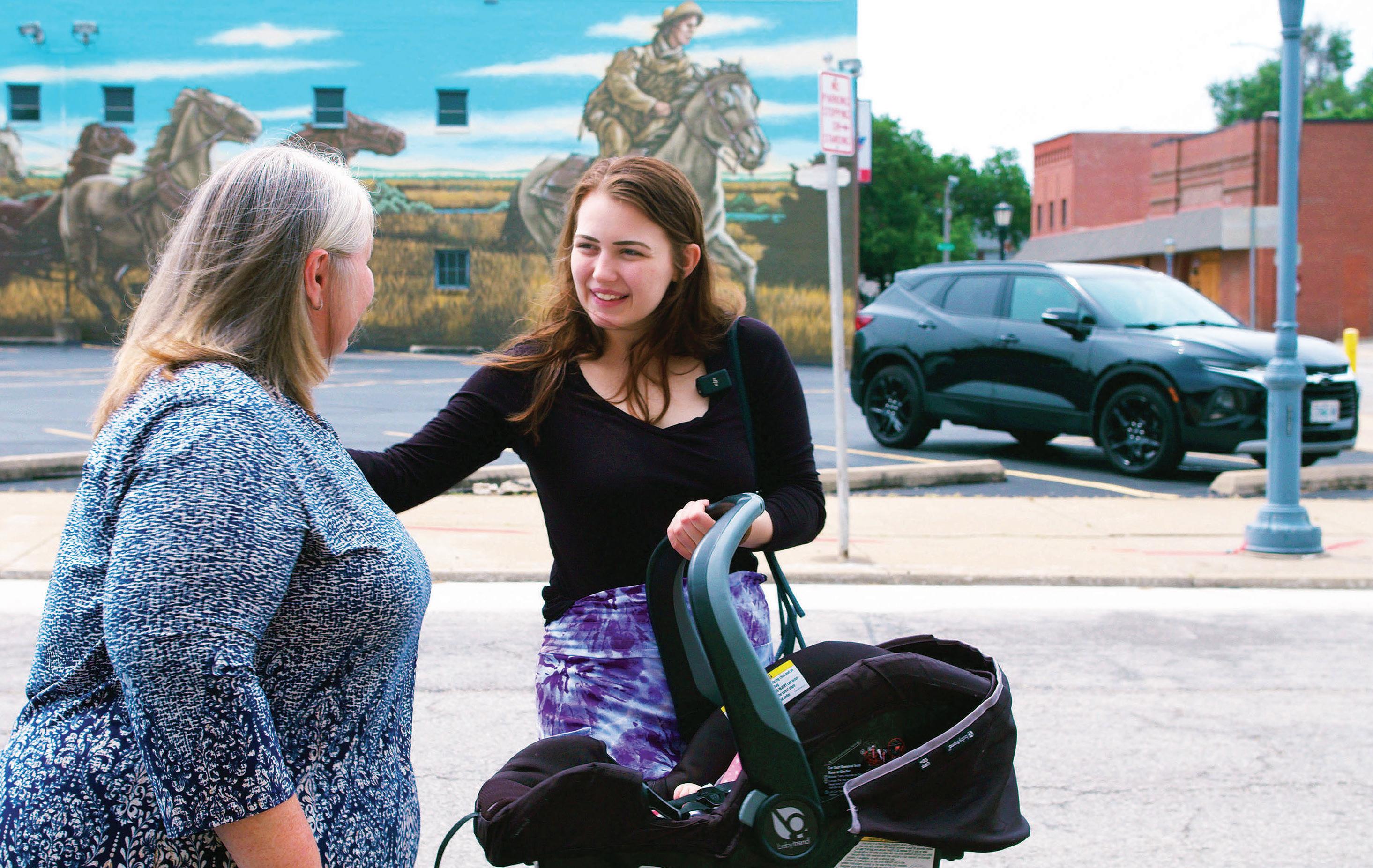
By Katie Pike
Photos by Steve Hagelman
At Catholic Charities of Kansas City-St. Joseph, outreach programs play a pivotal role in empowering communities by providing education to our most vulnerable communities. At the forefront of these efforts are initiatives aimed at enhancing the quality of life and well-being of individuals and families, such as our Moms’ Empowerment group, Social Butterflies, Community Housing and financial literacy programs.
The Moms’ Empowerment program focuses on equipping mothers with essential knowledge, particularly concerning safe sleep practices and other crucial childcare topics. This initiative recognizes the importance of creating safe environments for infants and young children, addressing concerns such as Sudden Infant Death Syndrome (SIDS) and promoting healthy sleep habits. By educating mothers, the program not only empowers them but also ensures the well-being of their children.
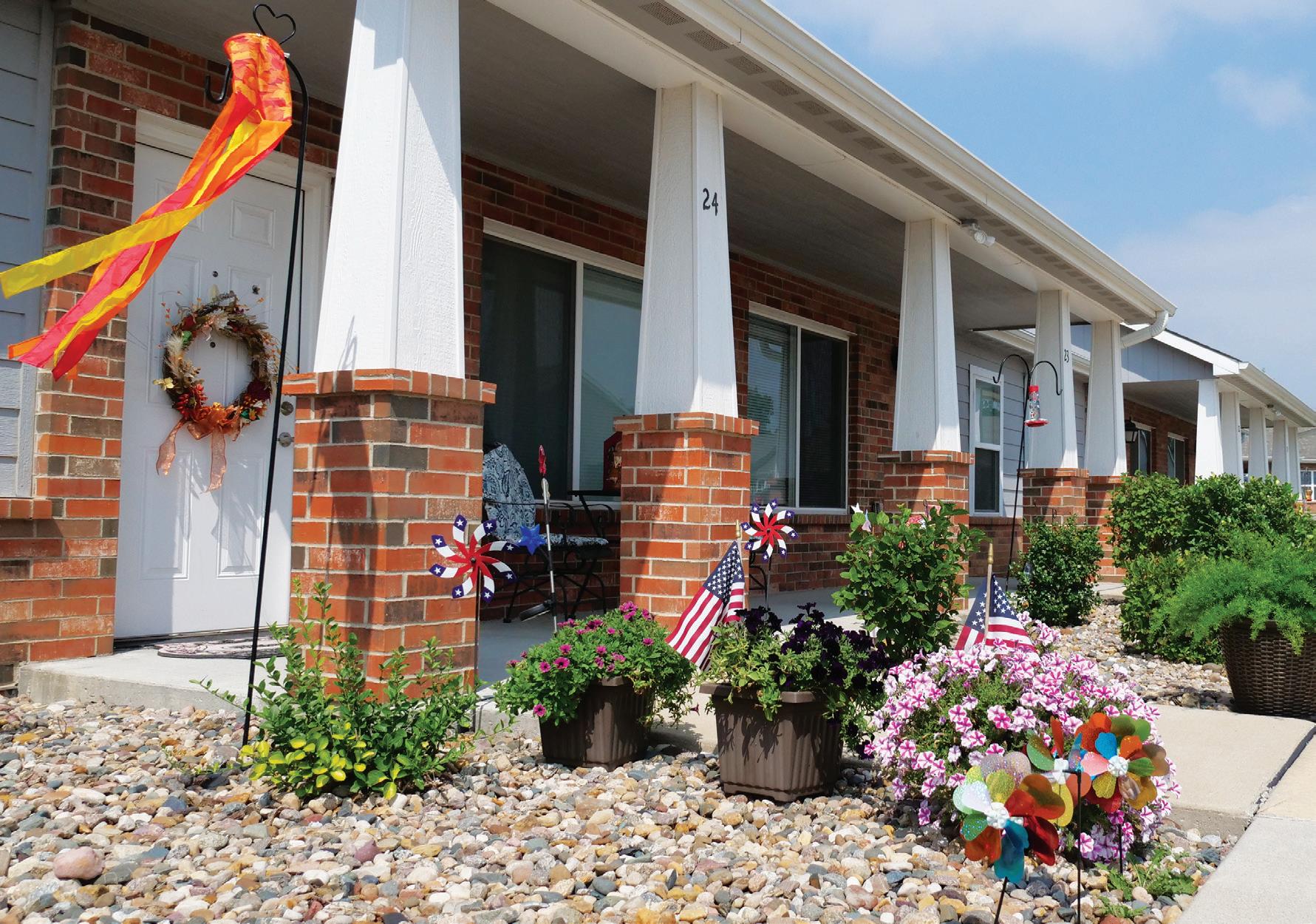

For care-givers of young children, our Social Butterflies program is dedicated to educating adults on appropriate child development practices. It emphasizes understanding milestones and developmental stages, enabling care-givers to provide optimal support for children's growth and well-being. By fostering a nurturing environment, Social Butterflies contributes to the holistic development of children and strengthens family bonds.
Education within the Community Housing program extends beyond mere shelter provision. It encompasses practical skills essential for maintaining a household, including financial management and apartment caretaking. Participants learn how to effectively manage limited resources, maintain cleanliness, and ensure the upkeep of their living spaces. This approach not only promotes a sense of pride and ownership but also cultivates responsible community members.
Financial literacy education is a cornerstone of many outreach programs, equipping individuals with the skills to manage limited resources effectively. This education covers budgeting, saving, debt management, and access to financial services. By empowering participants with financial knowledge, these programs aim to break cycles of poverty, promote economic stability and pave the way for sustainable futures.
The integration of education into outreach efforts amplifies their impact significantly. Through targeted outreach programs like Moms’ Empowerment, Social Butterflies, Community Housing and Financial Literacy, communities are equipped with the skills and resources needed to thrive. By investing in education, we invest in a brighter, more sustainable future for all.



Moms’ Empowerment and Social Butterflies programs teach new parents everything they need to know to keep their babies healthy.
Financial literacy courses connect students to additional, free resources in the area.

It is a little tool, with a bubble in liquid. The design allows a person building something to accurately gauge whether or not the work is straight. Pretty simple, actually, but VERY important.
A level gives perspective based on something bigger than the immediate environment. It points to what is true — a reality beyond what we can see. Levels help make sure your work ends up where you want it to go.
Recently, my family embarked on a project that required us to use a level. We were all surprised at how wrong our perspectives were in the situation.

By Karen Ridder
What seemed like a very small incline ended up being bigger than we thought. Places that seemed straight were absolutely not straight. Our expectations based on our experiences were woefully inaccurate. Without the level, our project would have been a disaster.
It’s a good metaphor for life, parenting and faith.
The endeavor of using our vision alone to raise children
As we parent today, an exponential number of things can throw us off level. Expectations of others do it easily. Envy, judgment and our own challenging natures can send our families VERY off track.
point of reference. It shows the straight direction, pointing to truth beyond the project at hand.
easily throws us off track. Our perspectives, as true as they MAY seem based on our experiences, are often simply not right. If we fail to check truths outside ourselves, we will end up with something unstable. Our parenting will be rickety. This is not what anyone wants for their children.
A straight path for our family requires a continual measuring and remeasuring against the level.
God gave us our level in Jesus. Jesus himself was raised by a carpenter who knew full well the importance of checking the level. Saint Joseph is often depicted with the tools of his trade, including a carpenter’s square. It’s not a level, as we understand them today, but it serves a similar purpose. A carpenter’s square provides a measure beyond human perspective. It gives a
I wonder if it was Joseph’s experience of using these kinds of tools as a carpenter that allowed him to understand how to respond to what the angel said about Mary; gave him the ability to escape with his family in the middle of the night to Egypt; allowed him the courage to come back home to Nazareth at the right time. None of these situations made sense from a human perspective alone, but Joseph was able to trust direction given from the level of his faith.
He followed it.
As we parent today, an exponential number of things can throw us off level. Expectations of others do it easily. Envy, judgment and our own challenging natures can send our families VERY off track.
If you find yourself in this spot, I recommend you check the level. Remember, our experiences aren’t the same thing as truth. They can point to truth, but only God is truth. Only Christ is the level. Ask Jesus to show you direction beyond your perspective, beyond your experience. Like Saint Joseph, learn to trust and follow the level.
By Marty Denzer
BONFIRES ARE POWERFUL SYMBOLS OF FELLOWSHIP, COMMUNITY AND CELEBRATION. When FIRE Foundation, a Kansas City, Missouri-based advocacy and funding organization supporting inclusive Catholic education, recently received a $1.25 million grant from Lilly Endowment, Inc., they saw an opportunity to broaden their reach to an even larger community. The grant will be used to establish Project BONFIRE, a five-year initiative intended to increase the capacity of Catholic K-12 schools to welcome and support students with developmental and/or learning disabilities.
Lilly Endowment, a private philanthropic foundation supporting religion, education and community development, was founded in 1937 by pharmaceutical giant Eli Lilly and his sons. Based in Indianapolis, it is one of the largest private philanthropic foundations and endowments in the United States.
The purpose behind Project BONFIRE (Building an Organized Network of Families for Inclusive Religious Education) is to expand the availability of high-quality, inclusive Catholic educational environments where students diagnosed with intellectual/developmental disabilities can grow, learn and thrive in faith-based schools alongside their siblings, friends and peers. FIRE and its network of affiliates plan an expansion of opportunities for students who have historically not been served by Catholic schools.
There are three areas of development Project BONFIRE will focus on providing resources for: advocacy and outreach,
professional development and capacity building. Thanks to Lilly Endowment's support, FIRE and its affiliates will be able to engage in a range of initiatives including building awareness with enhanced marketing and communication tools; building parent-support networks; and enrolling in inclusive education training programs developed by the Program for Inclusive Education at the University of Notre Dame.
Founded in Kansas City in 1996 by parents who ardently wanted their children with special needs to attend school with their siblings and friends, FIRE is regarded as a leading model for supporting inclusive education. The first Catholic schools to serve children with developmental and/or learning disabilities were St. Peter and Visitation. Lynn Hire, FIRE Foundation's Executive Director, said these first students, three boys now grown, “are all

takes place Oct. 12 as a celebration of inclusive Catholic education and fundraiser to support partner schools and students. Go to firefoundation.org for more information and to purchase sponsorships and tickets.
quite engaged in Kansas City as volunteers and/or employees. I can tell you that at FIRE Ball 2021, FIRE’s 25th anniversary, these three young men served as honorary chairs and did an awesome and amazing job.”
FIRE supports and engages students at 15 grade schools and high schools in Kansas City and St. Joseph and, over the last decade, has partnered with nine affiliates in other states: FIRE Foundation of Northeast Iowa, New Hampshire, Dallas, Central Illinois, Northwest Iowa, Denver, Milwaukee, Northwest Florida and Northern Kentucky. FIRE’s flame continues to shine a light on inclusive Catholic education, and Project BONFIRE is bringing that light of celebration and fellowship to an even larger community.


Psychologists and spiritual advisers say that it is healthy to take the time for self-assessment — to look deep into the self and ask, “Who are you and what is your relationship with the Almighty?”
It is through the dynamic of both … and that I hope to give an accounting of who I am and what I believe.
I am both a child of God and a disciple of Jesus Christ. It is true that Jesus had a uniquely H.O.T.T. relationship with his Father. He exhibited the virtues of Humility, Obedience and Total Trust with his Father. Every believer in Christ is expected to manifest the same virtues in our personal relationship with the Father.
A H.O.T.T. intimacy with the Father is realized through the spiritual behaviors of loving the Lord with your heart, soul, mind, and strength. (Mk 12:30-31)
I am both baptized in his name and confirmed by his spirit. Traditionally, Catholics adopt the name of a saint as their patron when receiving the sacraments of Baptism and Confirmation.
Two saintly references in my life are Saint Stephen, the first martyr of the Faith (Acts 7:54-60), and Saint Joseph, the foster father of Jesus.
My relationship with Jesus and the Holy Spirit is based on my appreciation of the lives of the saints I chose as my patrons. Both Stephen and Joseph had unique and remarkable relationships with Christ.

Both were engendered to the life of Christ and revealed an intense sense of commitment to him. I aspire to reach for the intensity of saints.

By Deacon Ken Greene
I am both forgiven of my sins and saved from eternal death. There are two essential components of living the Christian life — being saved from the penalty of sin and being delivered from mortality and given eternal life. Both components flow to us from the great sacrifice of Christ on Calvary.
What Jesus accomplished on Calvary is critical to who I am as a Catholic today. Catholicism has been the faith of my family since my paternal grandparents, Charles and Mamie, began to form their family of five children as early as 1908.
It is my identity as a Catholic believer that assures me of an inheritance that Christ won for all. My beliefs and commitment to the Faith undergird my thoughts, words and actions.
I am both spiritually blessed and equally loved by my family. Spiritual blessings come to individuals and families through their beliefs and subsequent responses to those beliefs. There is joy and holiness within family life, even when there are times of sadness and struggle. Families are compelled, by the grace of God, to love, forgive and reconcile our differences. There is much grace found in families who make the effort to be at peace and who strive to share that peace with others.
I am both truly Black and authentically Catholic. This phrase became the rallying cry for the Black Catholic Movement in 1976. It was then that the U.S. Black Catholic Bishops decided to re-invest in the early congress-gathering efforts of Daniel Arthur Rudd (Aug. 7, 1854-Dec. 3, 1933), a journalist, civil rights activist and founder/ editor of the first Black Catholic newspaper, The American Catholic Tribune, in Cincinnati, Ohio.
Subsequent modern-day congresses, VI through XIII, have offered collaboration, education, social development and the identification of issues and concerns impacting Black Catholic life.
To be Black and Catholic is to distinguish oneself as uniquely Catholic within a Church and society that do not easily accept diversity.
Jesus moved confidently among people of all differences, but the Church and society today find difficulty with “those people who live most obviously with their backs against the wall — the homeless, the working and jobless poor, the substance abused and abusers, the alienated, misguided, and essentially abandoned young people.”
(Howard Thurman, Jesus and the Disinherited, Beacon Press: Boston, Massachusetts, 1976)
To be Black and Catholic is to accept our role as members of the oppressed and to strive for the freedom and liberties Jesus promised to all who would believe and follow him to the kingdom.
Faithfully following Christ and living our lives in accordance with the presence of the Holy Spirit, who dwells within us, are obligations placed upon the lives of every true believer.
Por Leyden Rovelo-Krull
“¡Pero no puedo votar! ¿Por qué importa?” Es mayo y estoy dando una clase de noche a nuestros catequistas sobre la Doctrina Social Católica. Estamos hablando de la enseñanza de la Iglesia sobre derecho y deber de los católicos en la vida pública. Entiendo la perspectiva del hablante.
Según el Pew Research Center, un centro de datos que realiza encuestas de opinión pública e investigaciones demográficas, los hispanos/latinos tienen menos probabilidades que otros estadounidenses de ser elegibles para votar. Por dos razones: 1) somos más jóvenes que la mayoría (el 29% de los latinos tienen menos de 18 años, en comparación con el 22% de los estadounidenses en general) y 2) algunos no son elegibles para votar (el 19% de los latinos no son ciudadanos estadounidenses, en comparación con 6% de la población total de Estados Unidos).
Sin embargo, es probable que las familias tengan estatus

migratorios mixtos. Alguien en la casa, probablemente un joven adulto, puede votar. E incluso si ese no es el caso, la Iglesia, como cuerpo de Cristo, tiene la profunda responsabilidad de comprometerse con las realidades políticas de nuestro tiempo. Como afirma el Papa Francisco, " la libertad religiosa, por su naturaleza, trasciende los lugares de culto y la esfera privada de los individuos y las familias…el hecho religioso, la dimensión religiosa, no es una subcultura, es parte de la cultura de cualquier pueblo y de cualquier nación." Nuestra fe, lejos de ser un asunto privado, debe informar y moldear nuestro testimonio público, guiándonos a abogar por la justicia, desempeñar cargos públicos e infundir en la vida diaria el poder transformador del Evangelio. Como cristianos fieles, debemos cambiar el orden temporal. Predicamos con el ejemplo hacia lo que el Papa Francisco llama un “mejor tipo de política”. Como católicos, tenemos el desafío de prestar

By Leyden Rovelo-Krull
atención a las palabras del Santo Padre de que "los buenos católicos se sumergen en la política ofreciendo lo mejor de sí mismos para que el líder pueda gobernar". Esto no es una mera sugerencia, sino un llamado a la acción: redefinir nuestro enfoque hacia la participación política y el compromiso cívico. Como católicos estamos en una posición única para acabar con la "inclinación a preocuparnos sólo de mí mismo, de mi grupo, de mis propios intereses mezquinos" y, en cambio, buscar "el bien de todas las personas". Ver los desacuerdos como oportunidades para una colaboración fructífera en lugar de divisiones irreconciliables.
Si bien el Papa, los cardenales, los obispos y los sacerdotes tienen un papel crucial en el gobierno de la Iglesia y la transmisión de la doctrina, es responsabilidad de los laicos llevar el Evangelio al mundo. Uno de los derechos más fundamentales de un ciudadano fiel es el derecho al voto. Contribuir a configurar el rumbo
del destino político y social de nuestro país. Por el mismo derecho, un cristiano lleno de fe reconoce que él también tiene el derecho fundamental de moldear ese destino y, si es elegible, votar con una conciencia bien formada. Tuve una conversación con la madre de cuatro ciudadanos estadounidenses, cuyos hijos nacieron en Estados Unidos. Dos son elegibles para votar este año. Ella me dijo: “Aunque no puedo votar, les hablo a mis hijos sobre por qué es importante votar. Hablamos de la visión de la Iglesia sobre todo tipo de cuestiones. Ahora usaré los temas de la Doctrina Social Católica para ayudar a formar su conciencia”. No le pregunté sobre su afiliación política. No es mi asunto. Pero me animó escuchar su deseo de inculcar en sus hijos el amor por Dios y la patria. Quiere que sus hijos amen este país, que es su país de adopción. Creo que es un hermoso sacrificio por su visión de una vida mejor para ellos y un mejor tipo de política.


Del Obispo
El obispo James V. Johnston, Jr. es el séptimo obispode la Diócesis de Kansas City-St. Joseph
(Juan 8:12)
Este es un momento emocionante para nuestras
Es cuelas Católicas en la Diócesis de Kansas City-St. Joseph. El significativo y sostenido incremento de nuestra matricula en los últimos 5 años es un indicativo de que más personas se están dando cuenta de la diferencia que hace la educación católica en la vida de un niño. Sin embargo, ¿qué es exactamente lo que hace que una Escuela Católica sea “Católica”?
La respuesta corta a esta pregunta es muy sencilla: Jesucristo, el Hijo de Dios y Salvador del Mundo. Una Escuela auténticamente Católica siempre tiene como centro a la persona de Jesús, y es desde Jesús que la comunidad escolar extrae su vida, su inspiración y su cultura. Jesús es amado en oración y sacramentos, y en la Santa Misa; Él es “La Palabra, a través de la cual todo fue creado, y sin la Palabra nada se hizo”. (Juan 1:3)
Hablando más ampliamente, las Escuelas Católicas llevan a cabo su misión con una visión cristiana de la persona humana, del mundo y de la educación. Se recibe a cada estudiante como hecho a imagen y semejanza de Dios, único en personalidad y dones. Cada estudiante está hecho para ser amado y para
cumplir una vocación y el propósito de la voluntad de Dios en su vida, y lo más importante, para alcanzar la plenitud de la vida eterna en el cielo.
La cultura está definida por lo que una comunidad escoge celebrar, una Escuela Católica obtiene alegría de celebrar lo que Dios ha hecho y hace en la actualidad por nosotros, dentro de la comunidad escolar. Se celebran las fiestas y los santos; también celebra la bondad y los logros de nuestros estudiantes, nuestras familias y nuestros profesores. Las Escuelas Católicas están marcadas por la alegría y la gratitud. La realización de este magnífico trabajo involucra a un gran número de personas: estudiantes, padres (los primeros y más importantes maestros de sus niños), profesores, clérigos,
benefactores, administradores y exalumnos. Trabajando juntas, las Escuelas Católicas atienden todas las dimensiones de la humanidad de los estudiantes: la vida intelectual y el amor por el aprendizaje, la dimensión espiritual y la vida del alma, y la formación humana que incluye no solo estar en buena forma física, sino también el desarrollo de virtudes, modales, modestia y la comprensión de nuestra personalidad y emociones. Las escuelas Católicas, como cada uno de nosotros, no son perfectas, y son los lugares en los que el ejercicio de la paciencia y la caridad es siempre una necesidad. Y lo hacen mejor cuando todo el mundo avanza en la misma dirección. Las Escuelas Católicas tienen una posición única para la educación ya que pueden aprovechar la gran sabiduría de nuestra herencia Católica. Esta sabiduría es articulada y encarnada por aquellos que nos han precedido: santos, científicos, astrónomos y matemáticos, escritores y poetas, artistas, filósofos y muchos otros. Ellos dan testimonio de que no hay conflicto entre fe y razón, religión y ciencia. Las Escuelas

Católicas transmiten esta herencia que hace conscientes a los estudiantes de su lugar en el mundo y del gran relato de la historia. En otras palabras, una educación Católica despierta a los estudiantes a su identidad y a su gran destino.
No es por accidente que han aumentado sustancialmente la ansiedad y la depresión en los últimos 20 años, especialmente entre la gente joven. Aunque a esto contribuyen muchos factores, sospecho que una de las razones principales es la falta de significado - que hace que muchos teman que la vida no tiene propósito y que no hay nada que esperar. Las Escuelas Católicas se asocian con los padres para ayudar a los niños a ver que su vida está llena de propósito, que la gran aventura para la que fueron creados está delante de ellos, y que en algún punto los llevará a una cruz que deberán cargar. Los estudiantes pueden darse cuenta de que son una parte importante de la gran historia de Dios y de que fueron hechos para la grandeza.
La felicidad no viene de ser inteligentes o exitosos, por muy deseables que puedan ser esas cosas. Al final, la felicidad viene de ser sabios y buenos. Algo que solo Jesús puede cumplir completamente.


By Allison Vrooman
TWO OF THE ST. THERESE CATHOLIC SCHOOL’S VEX ROBOTICS COMPETITION TEAMS PARTICIPATED IN THE VEX ROBOTICS WORLD CHAMPIONSHIP IN DALLAS IN APRIL. THE TOURNAMENT FEATURED MORE THAN 300 TEAMS FROM FIVE CONTINENTS.

Karlo Krstanovic, Robert Jenkins, Ben Kendrick, Jack Roth.
In 2016, a robotics program was started at St. Therese Catholic school in Parkville with two robots and 12 students. The program has now grown to a roster of approximately 60 students, composing 11 different teams. This group of fifth through eighth graders has competed all over the Kansas City area, across the state of Missouri, and, for a select few, against teams from other states and countries.
Each competing year, teams from St. Therese have qualified for the state tournament. Following a state champion status in 2023, teams 61526A and 61526F earned the champion title for the school once again, qualifying for this year’s world championship tournament.
Throughout the course of the school year, students work as a team to design and construct a robot that will be able to compete in the specific challenge given that year. This year’s challenge emulated a soccer game. The task was for the team to get as many tri-balls into their own goal and out of their opponent’s goal. Four teams compete in each match, two in alliance with each other against the other allied two teams.
Beginning with a CAD mockup, students build and test, then rebuild and test again, until they reach their ideal robot. Ben Kendrick was the documenter for team 61526A, keeping an updated engineering design

“That was really cool to see at state. They stopped, they gathered, they prayed. They didn’t care that they were in the middle of kids from all over the city. That was their thing.”
notebook. “This [notebook] documents everything we do throughout the year, what all we talk about, what we do each day, and every other part of it,” he shared. Though it is not required, keeping a log can be beneficial during the building process and during competitions, as well as can be fuel for many awards.
St. Therese staff members
Cathy Mulligan and Joe Park are the fearless leaders of the robotics program. However, they are merely there to support from a distance. “The great thing about the program is that, at its core, it is student centered. As coaches, we are here to help advocate and facilitate. All the design, construction, testing, and driving
wearing, and the pride people had for their countries.”
The success of this year’s teams can be attributed to something greater than their hard work and dedication. Amid the buzz of the tournament, the team gathered to pray. “Before our big matches, we’ve come together and prayed as a group. We called on God to help us, whether our success is his will or not,” shared Michael Mulcahy. Choked up, coach Mulligan recounted, “That was really cool to see at state. They stopped, they gathered, they prayed. They didn’t care that they were in the middle of kids from all over the city. That was their thing.”
The team will begin meeting again when the new school year starts up, with the hope of finding success in another season.

is student centered,” Park emphasized, adding, “They get to see some cool things, learn a lot of transferable soft skills, and as they go to high school, they can carry it with them.”
More than learning how to build and code a robot, students learn how to collaborate with others, communicate their ideas, and persevere through trial and error. Additionally, they have the opportunity to expand their cultural horizon by interacting with people their age from around the world. Robert Jenkins recalled a memory from the world championships. “I got to be part of the team that represented the U.S. in the Parade of Nations. It was very cool to see all the traditional outfits that everyone was

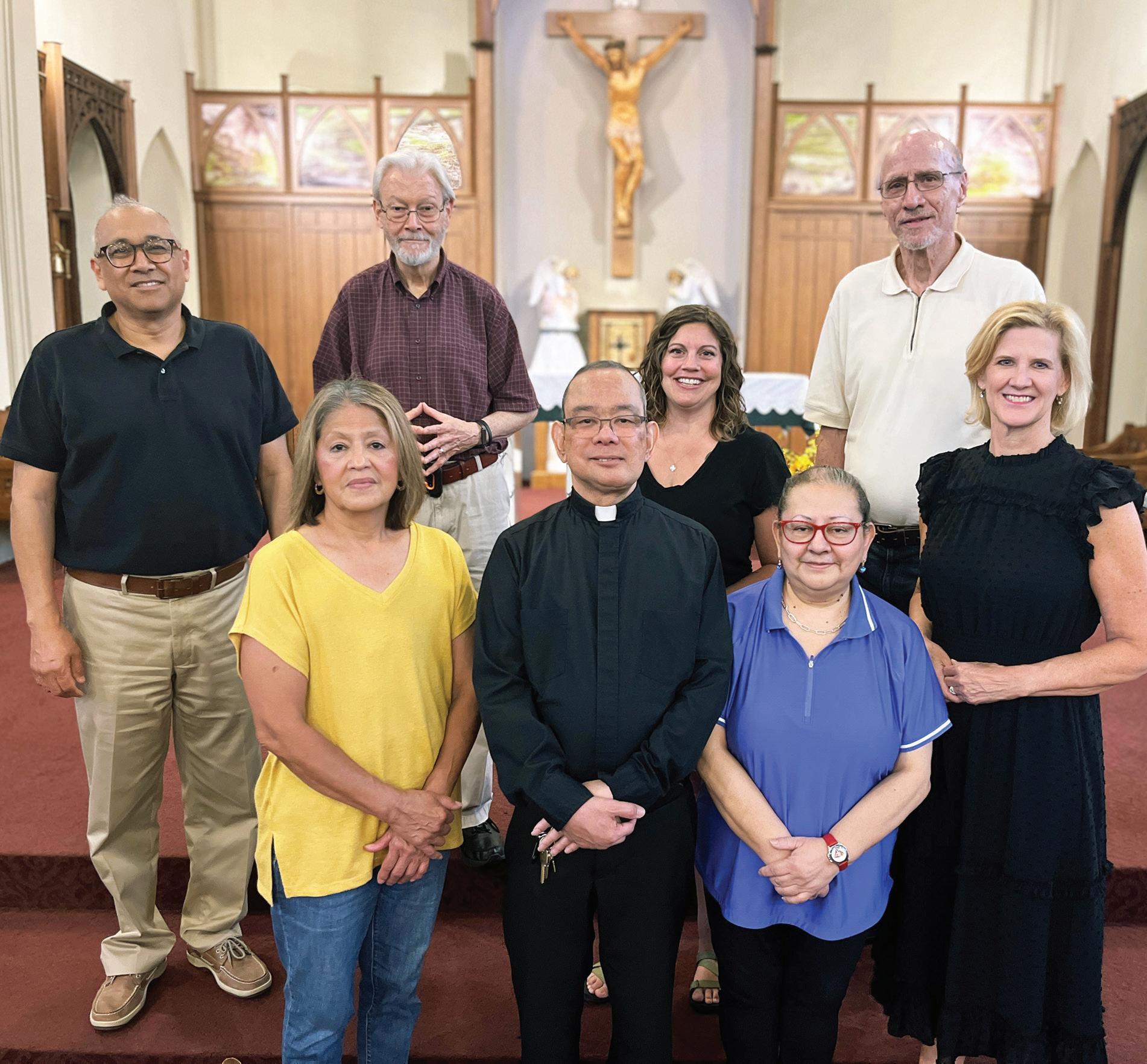
By Marty Denzer
A2019 vision for the Diocese of Kansas City-St. Joseph, led by Bishop James Johnston, set as one of its priorities: “Using our resources wisely.” Over the past four years, a series of pastoral planning efforts have worked to better align God’s gifts for the Church’s life and mission through strategic studies of parish vitality and future growth potential.
While these strategic studies have led to the closure of several churches whose mission had reached its natural end, other parishes have seen a significant increase in vitality as they have welcomed those missionaries
into their new parish family. Some buildings are no longer Catholic churches, but have taken on new life and are now serving their neighborhoods with refreshed missions of service, health care or faith. And at least
one parish has found a way to rise to the challenge presented by the findings of the strategic study, revitalize and reactivate for a stronger future.
Guardian Angels Parish, in the iconic stone church on West-
port Road, was almost closed. Following a strategic study of deaneries I, II and XI, its pastor, Father Carlito Saballo, SOLT, had two years to try and turn things around.
The parish was founded in 1909 to serve German families moving into the Westport area from downtown.
Bishop John J. Hogan of the Diocese of Kansas City appointed Father Karl J. Haeckler the first pastor of Schutz Angel Kirche, Guardian Angel Church. A two-story brick building was built with classrooms and convent quarters for the teaching sisters on the first floor and a chapel on the second. The first Mass was celebrated Oct. 2, 1909, the feast of the Guardian Angels.
The current church was established in 1922 and mostly completed by 1923. The first Mass was celebrated on Christmas Day in 1923. Its dedication was celebrated in May of 1924.
A century later, Father Saballo was determined to keep his parish alive. Upon becoming pastor, he had inherited a debt to the diocese of $100,000. The boiler also needed major repairs, adding another $30,000 to the debt.
Increasing income and reducing expenses topped his “to do” list. But how to do both with fewer parishioners and bills to pay?
Father Saballo began by collaborating with Father Garry Richmeier, C.P.P.S. at nearby St. James Parish, hosting a series


of parish missions led by members of the Society of Our Lady of the Most Holy Trinity. This bolstered a sense of community and fellowship with neighbors and fellow Catholics.
Father Saballo borrowed an idea from Bishop Johnston, who, as the COVID-19 pandemic dissipated, invited all Catholics of the diocese to “Come Home to Communion.” Father Saballo simply invited parishioners to “Come Back.” “They came back,” he said.
He emailed the parishioners, explaining, “We need to work together to save this parish.”
The response was favorable and weekly contributions began increasing.
Music, a new hymnal, candles and “down-to-earth” homilies also helped draw parishioners back, Father Saballo said. “I greet parishioners and welcome visitors before Mass and then introduce the visitors during my homily. Pastors should be welcoming, not distant.”
Next, Father Saballo reduced staff hours and invited parishioners to help resurrect the parish finance and pastoral councils to assist in parish planning. “Again, they came back,” he said.
In 2022 and 2023, parish festivals held in early October raised much-needed funds.
The Holy Name Society hosted several events and Lenten Fish Dinners, and the parish’s 2023 St. Joseph Table made a $16,000 profit for the parish.
The parish set a goal to bring down the debt by the end of fiscal 2023 and the $100,000 debt was paid as promised. Encouragement and transparency elicited generosity, Father Saballo said.
As of May 2024, there are 323 registered parishioners and average Mass attendance can reach 208. Total annual parish income has increased more than 30 percent to nearly $550,000.
Today, Guardian Angels Parish is vibrantly forward-looking, and its priest is all smiles.
By Karen Ridder
When eight students at Nativity of Mary school all asked to be baptized last year, Principal Stephanie Hollo decided it called for a school-wide celebration.
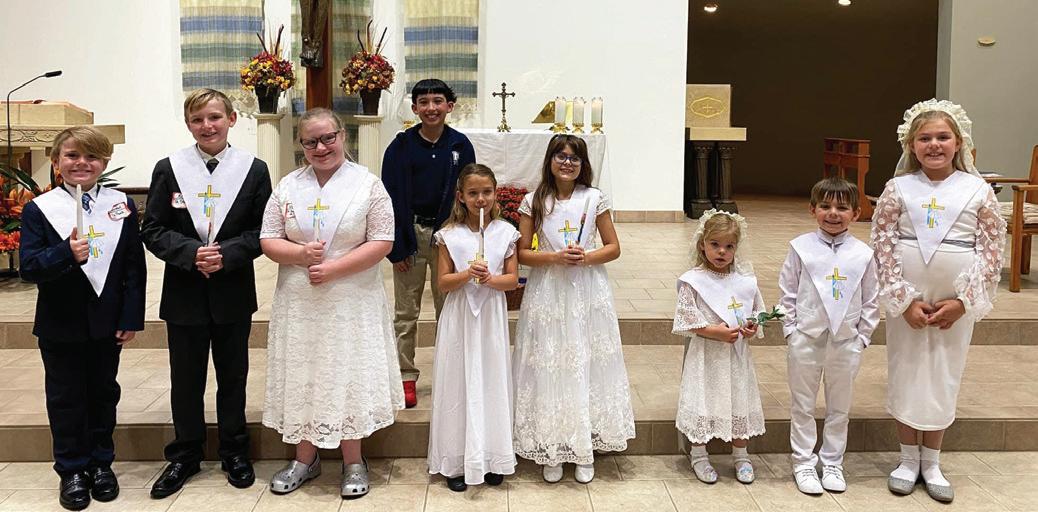
The students had all been given the chance for a Catholic education through the MOScholars program facilitated by the Bright Futures Fund. It is an opportunity that changed their faith, while it was changing their educational path.
“They got there and realized how much they loved the Catholic education and asked their parents to become Catholic,” said Hollo.
The Baptisms point to the many ways the MOScholars program, which allows Missouri taxpayers to divert up to half of their tax liability to scholarships for kids, is changing schools and lives for the better.
Nicolette Gibson, director of Bright Futures Fund said, “MOScholars gives low-income families access to Catholic education which is important because Catholic schools are a tool of evangelism and quality education is a proven way out of poverty.”
Each year, Nativity of Mary school would get inquiries from families who wanted to send their children to the school but could not pay the tuition.
When the MOScholars program became available, the school approached some of those families and invited them to apply for the scholarship. Many of them are now attending the school.
“It’s families who really wanted to be here but could never think of it as an option of what they could afford,” School Office Manager Susie Addison said.
In the program’s first year, the school enrolled 29 MOScholars students. Last year, the school had 63 students receiving the scholar-

ship. This fall, they expect close to 90 MOScholars students enrolled. While the school still has room for growth, they have had to close some classrooms because they are full.
Nativity of Mary school is now looking at a more solid footing for the future.
“Increased enrollment in our schools provides more resources for all students and allows them to stretch their current financial aid farther,” Gibson added.
The school budget can now include extra items and supplies for the classrooms, like new Chromebooks for students. Hollo has also been able to expand fine arts offerings, increase staff salaries, and add a half-time school counselor. In the future, Hollo is hoping to add a special education coordinator position. This is a job she currently does herself. It is important, considering Nativity is a FIRE Foundation-sponsored school offering special education services. Kids who qualify for IEP services automatically qualify for MOScholars scholarships.
Addison, who has been at the school for decades, says she appreciates being able to see the parish have the ability to reach out to the neighborhood in a way they could not before.
“We can be a neighborhood school for our surrounding community. MOScholars is making [it possible for] those who live in the neighborhood to have a choice for Catholic education,” Addison said.
Plan ahead to donate to the MOScholars program at www.brightfuturesfund.org. At this website, any taxpayer (individual or business) can reserve tax credits for up to half of the Missouri tax liability expected on their return. This money is turned into scholarships for children to experience a Catholic Education in our diocese.
“I found the MOScholars tax credit process to be quick and easy to understand. I so appreciate being able to utilize the tax dollars I am already paying to the state of Missouri to benefit families, who so desire a Catholic education for their children. Please take the time to review this, it really is too good to be true!” – Lamar Hunt, Jr.
By Allison Vrooman
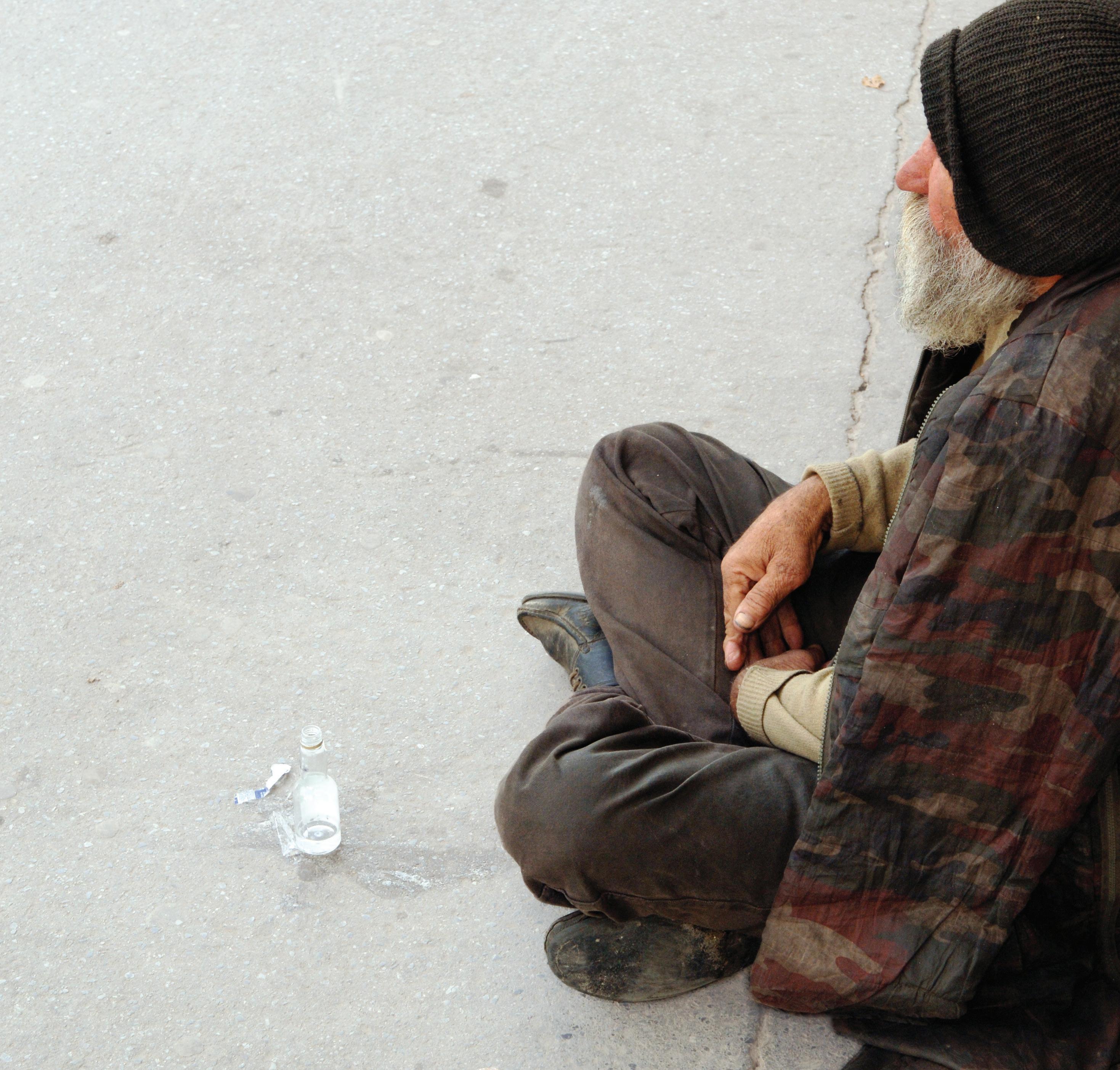
“WITHOUT
SERVING OTHERS, THERE IS SOMETHING MISSING,” STATED MARLA BYRNE, PARISHIONER AT ST. THOMAS MORE IN KANSAS CITY.
“I DON’T THINK YOU CAN ACHIEVE REAL JOY IF YOU ARE NOT THINKING ABOUT OTHER PEOPLE.”
Building on her belief of the importance of service, Byrne, along with Tom Turner and one other woman, taught a program to sixth-grade students about homelessness and the responsibility of Catholics in the realm of social justice.
The idea for this program stemmed from a class that was taught at the Bishop Sullivan Center years ago. “That’s Not Fair” was a nine-session course about what social justice is, how to advocate for it and the Catholic response to the issues.
During the summer of 2023, the curriculum was written for the three-part program and was taught for the first time in the fall. Students at St. Patrick Catholic School in north Kansas City, Missouri, and Curé of Ars Catholic School in Leawood, Kansas, were the audience for the pilot year.
The first session covered the question: What does it mean to be homeless? The students gave names and a life story to photos of homeless individuals. The idea of this was to break the misconception that homelessness comes from not wanting
to work or apply oneself. They were also tasked with naming things they have that a homeless person might not. This opened their eyes to realize that ordinary things in their own lives may be a privilege to others.
During the second session, the students learned what the Bible says about homelessness. They read stories, such as the good Samaritan, and acted out the scenes, connecting the actions to what they had learned in the previous session.
In the final session, the students were challenged to take the knowledge they have learned and apply it to the world around them. They questioned what they could do as an individual, as a family and as a community to fight for social justice.
The hope for this program was to make students aware of what goes on in their community, to help them understand the duty of Catholics to care for one another and to encourage serving others.
Giving of oneself is a crucial yet often overlooked form of prayer. Just as the young students have been challenged to apply their knowledge and take action, so, too, is that a relevant call for each individual.

For more information on the game, or to learn how you can purchase, please visit www.themissiongame.com/.
While the geographic map on the game board may lead one to think of other popular board games, Jackie is quick to point out that “The Mission: Faithful Odyssey” is unique in the fact it has no fighting, and movement is very different from other games on the market.
By Sara Kraft | Photo by Ashlie Hand
“Whatever little bit of light we can provide, we should,” explains Jackie Nold, the creator behind “The Mission: Faithful Odyssey,” a Christian board game that seeks to impart biblical truths while players have fun. “It’s our calling.” With her eight children, Jackie and husband Luke, parishioners of St. Mary Parish in St. Joseph, seek to incorporate their faith throughout their family life. Family time, including board games, is no exception. When the idea for an engaging Christian board game struck, Jackie decided to produce it for others to enjoy.
In the board game, missionaries are sent to embark on a journey across the world spreading the Gospel.
“In the beginning of the game, players are dealt mission trip cards, which show where each player is to move and evangelize,” describes Jackie. “Each turn, players have the opportunity to play, build, travel, and trade.”
As in real life, both distraction cards and miraculous cards provide unexpected events or twists that can change the course of the game. The game typically takes between 30 and 90 minutes. Play options are for two to six players, and it is intended for ages 8 and older.
The Christian faith is woven throughout the game. In addition to sophisticated graphics, cards feature Bible verses that correspond to the action. For instance, the Mission Trip card deck features Scripture at the bottom that corresponds to evangelization. Jackie hopes this game will help players become more familiar with Scripture.
The game is meant to inspire families and friends to go beyond the electronic veil and have conversations around the table. Additionally, it can help convey biblical truths.
“The idea for the game struck in the middle of the night,” explains Jackie. “It literally came out of nowhere.”
Jackie, who has a background in graphic design, created a prototype and began playing the game with her children, family and friends. In May, she launched a Kickstarter campaign, but pulled it after getting some beneficial feedback which she believed would improve the game. The game is still in the development stage, and focus groups are continuing to give critical feedback. Following the improvements, she will relaunch.
In the future, Jackie hopes to create other board and card games through Glory to God LLC.
BISHOP JOHNSTON asks for your prayers and advocacy as we expect a vote in the state of Missouri this November on an amendment that will add a right to an abortion into the Missouri State constitution.
Dear Gracious God,
By your hand we received the gift of life at the moment of conception.
Through the working of the Holy Spirit, you call us to live out our faith even in the midst of a troubled world. You call us to proclaim the truth of the Gospel of life and your love to all around us.
We ask you to bless us as we share your teachings on the dignity of all human life, especially the preborn and their mothers.
Give us strength of heart and mind. Do not allow us to be discouraged as we make our voices heard to proclaim your teachings that are now being threatened.
Give us a clear voice as we work to overcome the trial before us for the sake of all people in Missouri.
We ask this in the name of your Son, Jesus Christ our Lord. Amen.

For more information, please visit www.lifeandjusticekcsj.org, or scan the QR code for updated information on this issue.



me while you pray! Markers or colored pens are recommended.



